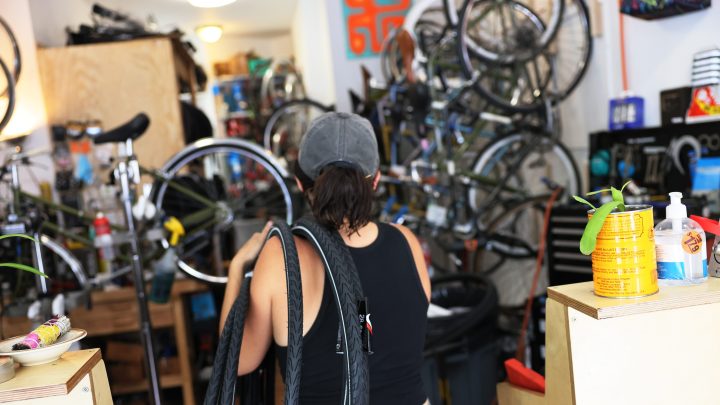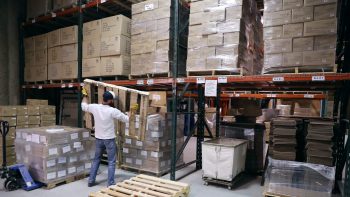
Bloated inventories are dragging down some sectors of the economy
Bloated inventories are dragging down some sectors of the economy

Wholesale inventories have been top of mind lately — basically, a lot of businesses are trying to avoid ordering too much stuff, since consumers haven’t been buying as much of it. That’s good news for inflation and the Federal Reserve’s efforts to achieve a soft landing.
But things haven’t been easy for the companies that have had to get rid of all that excess inventory.
And even though wholesale inventories are down from where they were 12 months ago, there are still plenty of sectors of this economy where inventories are still too high.
It’s been about six months since Frankesha Watkins first started noticing that her inventories were too high. She runs BPolished Beauty Supply, a store in the Dallas-Fort Worth area.
“What we’ve been doing is, you know, running some sales, to try to get rid of some dead stock that we have, things that are no longer moving,” she said.
She said she thought the holiday season would help, but it kinda didn’t.
“We were actually pretty slow. But, you know, I talk to people in the business. And it’s just not — it wasn’t just me, it’s like, across the board,” she said.
Other businesses that are still trying to get rid of excess inventory include appliance wholesalers and clothing companies.
And that has ripple effects throughout the economy, said Jason Miller, a professor of supply chain management at Michigan State University.
“That’s fewer orders to manufacturers. That means there’s fewer imports, which means there’s less freight for trucking companies to move,” he said.
And that’s caused a lot of companies to struggle for a while now.
The bike industry, for example, has been oversupplied since the end of 2022, said Jeff Cayley, CEO of Worldwide Cyclery.
“There has been some bankruptcies. And there’s just been a number of brands in the industry that are … yeah, they’re just in bad shape,” he said.
Last month, one bike brand put on a buy-one-get-one-free sale for bikes that cost several thousand dollars.
Cayley said consumers are starting to expect deep discounts. And even though he said his company is doing OK, it’s been offering markdowns too.
“We did a whole sale around deflation and called it a deflation sale, and the discount code you used on the website was actually titled ‘deflation,'” he said.
Cayley said in his industry, it’ll probably take another 12 months for inventories to get where they need to be.
There’s a lot happening in the world. Through it all, Marketplace is here for you.
You rely on Marketplace to break down the world’s events and tell you how it affects you in a fact-based, approachable way. We rely on your financial support to keep making that possible.
Your donation today powers the independent journalism that you rely on. For just $5/month, you can help sustain Marketplace so we can keep reporting on the things that matter to you.

















